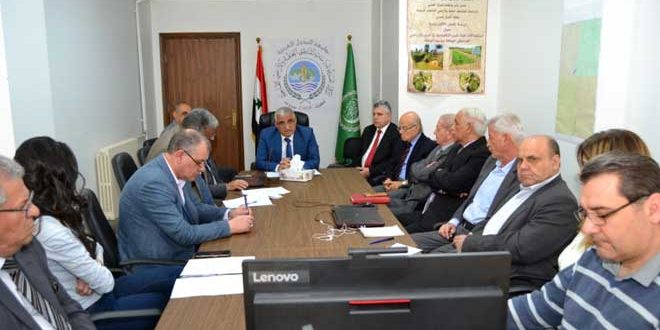With the participation of eighteen trainees from Lebanon, Jordan, Palestine and Egypt, a training course on the use of the Aqua Crop program for irrigation water management and the study of the impact of climate change on crop productivity has been launched today in Damascus, in partnership between the Arab Center for Studies of Arid Zones and Dry Lands “ACSAD” and the Food and Agriculture Organization of the United Nations (FAO).
ACSAD Director, Dr. Nasr El-Din El-Obeid explained in a speech that building Arab capacities in the use of modern technologies, including the Aqua Crop model, is an essential step for water-related bodies in the Arab region to find effective solutions to meet water needs amid the scarcity of available resources and the low efficiency of its use.
Al-Obeid elaborated that the Aqua Crop model is one of the most important means of improving water management by providing accurate information about the water needs of agricultural crops necessary to accurately estimate water rates, which helps in improving irrigation water management and raising the efficiency of its use.
ACSAD Director pointed out that the available water resources in the Arab region are limited and their total annual volume does not exceed 260 billion cubic meters, while the demand for them far exceeds that figure. Al-Obeid further added that thirteen Arab countries are amongst the nineteen most water-scarce countries in the world.
The three-day course aims to transfer the expertise of the Arab Center’s experts in the field of using the Aqua Crop model to technicians and introduce them to the components of the model and its most important applications, especially estimating water rates, calculating water productivity, and organizing irrigation scheduling procedures in order to improve irrigation water management and raise the efficiency of its use.

